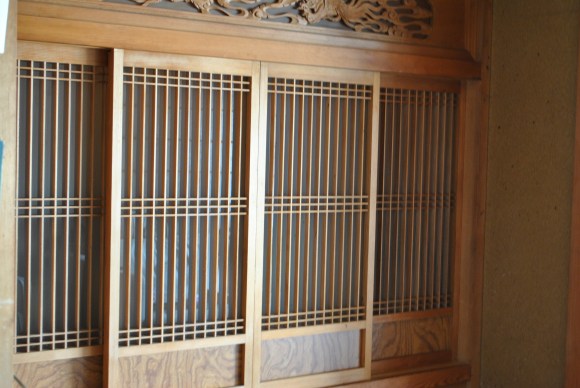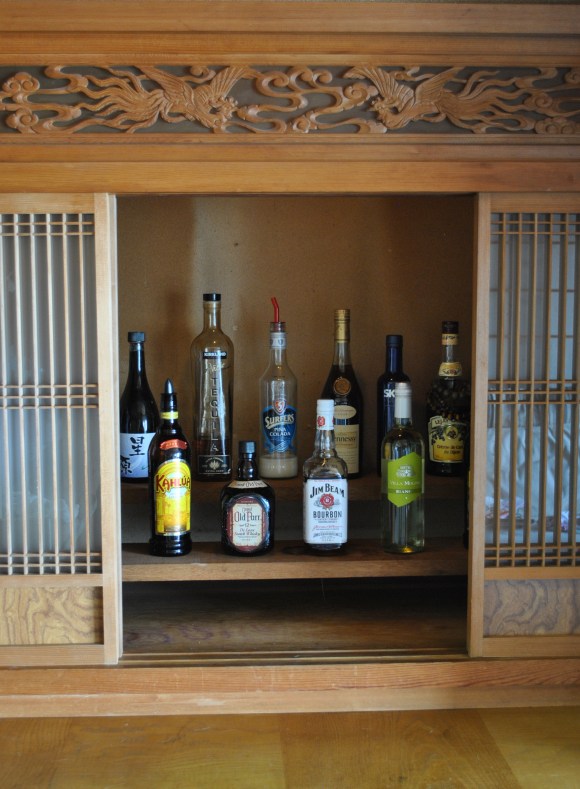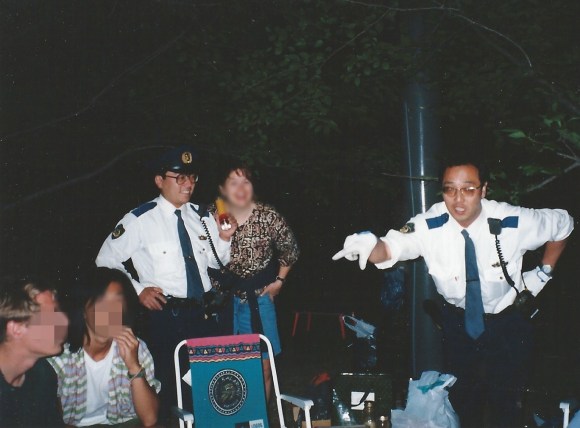
In Japan almost everyone hangs out their laundry to dry rather than using costly, energy-guzzling clothes dryers. Foreigners have no problems complying, but one quickly learns that underwear is special–you don’t hang it out with the rest of your clothes where others might see it (or try to see it). The “smallies” are to be hung up inside. When you think about it, it does make sense. But other things are harder for foreigners to get used to and yet others just don’t make sense at all to us so are harder to incorporate into our lifestyles here.
Pooling responses from expats living here in Japan and the RocketNews24 staff, today we’re sharing the most common things that we just can’t quite embrace like the Japanese do, no matter how hard we try. Join us after the jump as we reveal the secret life of gaijin…but shhhh, don’t tell anyone!
Most who responded to our poll were long-term ex-pats who speak the language well and know the ins and outs of Japanese life. But that doesn’t mean they do everything by the book when left to their own devices. Let’s see what their confessions are:
1. Butsudan Borrowing
One person admitted to the somewhat sacrilegious use of the butsudan in her Japanese house, which are normally used to worship the spirits of your ancestors. Traditional Japanese houses have these Buddhist altars built in to them, like this:
But this particular ex-pat doesn’t have family in Japan, so rather than let the butsudan stand empty, she houses a different kind of spirits inside.
This woman is obviously not afraid of the wrath of the gods. Or maybe she just doesn’t know.
2. Selective Language Amnesia
▼When the cops show up, you can be sure that suddenly, not one single foreigner in the group will be able to speak Japanese.
This is an old fallback, but it still works! Most authorities in Japan, whether they be the police, station masters or even immigration officers, don’t speak English. And as long as you’re a foreigner who doesn’t speak Japanese, you have the perfect excuse to feign ignorance of the law. When the above expats were busted by the police for having a BBQ at night around the castle, pretending they couldn’t understand the language got them off the hook with just a promise to never do it again.
Another expat revealed that when he was single and out drinking with friends, when chatting up girls he would pretend not to understand Japanese so that he could tell what the girls – who thought they were safe to conspire just inches away – were saying about him.
We realize we will burn in hell as a punishment for such blatant language amnesia.
3. Pimping Nationalities
“Are you American?” is a common question for Japanese people to ask when meeting a foreigner for the first time, probably because of the large American military presence here. While most other nationalities don’t appreciate the association, on the other hand, just saying yes, and passing yourself off as another nationality is an easy scapegoat to avoid having to talk about your own place of origin and answer the same questions for the hundredth time. One person of Germanic descent told us she sometimes tells people she’s from the USA because “It’s easier than explaining WHAT Germany is, or WHERE it would be on the map of the USA.” As an American myself, however, I wonder how effective the geographic reference is for Japanese people though since I get asked “Are you from California?” and when I answer in the negative, the next question is quite often, no lie, “Are you from Los Angeles?”
4. Not taking shoes off to go back into the house for a second
▼The proper Japanese way to crawl back into the house to retrieve something you forgot without taking your shoes off. Stay on your knees and never, ever let your shoes touch the floor! Got that?
So you’re ready to leave the house, standing in the genkan (entryway) with your shoes all tied and your hand on the door knob when suddenly, you realize you forgot your wallet! It’s just lying there on the kitchen table not 12 feet away. You can even see it from where you’re standing! Nine out of 10 foreigners will simply walk into the kitchen with their shoes on and retrieve the wallet, flagrantly treading over the unsuspecting floor tiles. Truly incorrigible, not a pang of guilt do we feel for the virgin floor that has never known a dirty sole.
It doesn’t count if you step really lightly, right?
5. Slipper atrocities and tatami transgressions
▼Sorry, we’re just not going down that path…especially not in slippers.
We foreigners are not afraid to acknowledge that we just don’t get the slipper thing. Most of us adhere to taking our shoes off at the door but once we’re inside the house, do we really need a change of slippers at each barrier crossed? From house slippers to veranda slippers and toilet slippers, or if you’re walking into a tatami mat room–no slippers! In the course of even a few minutes you can go through so many slipper changes, its mind-boggling. This forces us to ask our rational selves: Is this really necessary? Foreigners have been known to sling insults at such communal slippers (which are often plastic and poorly fitting), calling them disgusting, sweaty and full of germs.
While many gaijin flaunt the rules by not using toilet slippers at all, others rebel by just wearing the regular house slippers into the toilet room, out onto the porch, or even occasionally on the tatami mat. Others shun slippers altogether and go, horror of all horrors, barefoot! The good thing about going completely unshod is that you have no chance of committing the embarrassing iniquity of walking on the tatami mat with slippers, or the most heinous slipper crime of all: forgetting to change out of the toilet slippers and wearing them around the house.
And while we’re on the topic of footwear, besides egregious slipper abuse, there have been reported shoe atrocities too! Some corrupt individuals revealed that they have used their outdoor sneakers or joggers at the gym rather than having a special never-touched-the-dirty-pavement pair especially for indoor workouts. As one guilty entity said, “I’m a bad person and will probably never be granted permanent residency in Japan.”
6. Clothing Misdemeanors
▼Totally acceptable Gothic Lolita street clothing: full coverage.
It’s pretty hard to leave the house without committing a fashion faux pax in Japan, unless of course you can, in sweltering humidity and temperatures at 40 degrees leave the house totally covered head to toe: hat, long-sleeved shirt (or arm guards), gloves and a parasol. You get to the point where you realize you just can’t comply with all the varying clothing decrees, and you don’t really care either.
Depending on the part of Japan you live in, you may never see the armpits of a Japanese woman over 40 (unless you’re at the gym). Outside of the cities, sleeveless shirts are rare and adults don’t often wear shorts unless they’re heading to the beach. If you willfully ignore the customs, try not to brazenly insult the seasons. I was chastised by my neighbor for wearing a sleeveless blouse in May, acting as if it were mannatsu (mid-summer).
And fashion decorum is a 24-hour thing here too. If you walk your garbage bags out to the corner of the block in your pajamas, like one foreigner we spoke to did, you’re sure to raise eyebrows. One friend avowed that she goes braless to take out the garbage, something she says Japanese women would never do. I bet some of the neighbors wake up early on garbage day just to see that. (Note: this spell checker doesn’t even recognize the word “braless,” so it’s pretty much not a concept here I guess).
7. Garbage Faux Pas
▼Are you absolutely sure every one of your cans has been rinsed out? Hmmm?
As well as being slipper defiant and fashion maleficent, many foreigners are garbage derelicts. Improperly disposing of garbage was by far the most common premeditated crime foreigners confessed to under oath.
This truth was exposed by one foreigner who said: “Sometimes I take my food scraps down the street and throw them away in somebody else’s collection area on a bottles and cans day or whatever. I do this because my apartment is on the ground floor and really prone to cockroaches and bugs getting in so I’d rather not have a bunch of raw food sitting out for days at a time.”
The “gomi police,” neighbors stationed at the corner of the block to enforce the rules on garbage days, are known to refuse bags if they’re not put out properly, and to send them back to their owners with notes on them telling them to correct the problem (e.g. if a random steel can jumps into the bag with the burnables). One woman revealed that she takes her bills to work and uses the shredder on them before throwing them away to get rid of any English writing that might incriminate her if someone suspected her bag violated a particular garbage edict. Another conceded to leaving garbage at the designated place under darkness so no one could see who was putting it out incorrectly.
One expat declared that she never rinsed out her cans and bottles while another revealed: “When I’m out and about, I throw away personal gomi in the trash in public bathrooms even though they have signs saying not to, because there are no bins anywhere in Japan and I don’t want to carry dirty gomi (like juice boxes) in my bag all day.” Luckily, she did admit, “I’m a terrible person!”
8. Laundry Infractions
Japanese housewives are known to be rather effusive about doing laundry and it is not uncommon for them to do a load every day come hell or high water. Towels, brassieres, etc are washed after every use, hung out to dry and brought back in at the appropriate hour (probably with the 5 o’clock chime). So, you can imagine how shocked one foreigner’s neighbors were that she leaves her laundry out to dry for two, three, even (gasp!) four days because she has forgotten to bring it in! Tsk, tsk.
9. Bathing Abominations
▼You don’t see any anyone swimming, do you? Nor drinking beer!

It turns out that many foreigners aren’t too worried about bathing citations either. One person said they’ve washed their hair in the bath by dunking their head in the water, and another frequently violated public bath etiquette by taking a can of beer in with her. Two violated the bathing regimen by not always washing thoroughly before getting into the bath with others. In the local sento, I’ve noticed that the hard-core public bath goers don’t always wash thoroughly either before getting into the public bath, but they do, however, wash their private parts. Well, thank goodness for that!
10. Capers under darkness
Two people openly declared that they whistle at night (said to bring out the snakes) and cut their fingernails after dark (said to be bad luck) while one confessed that, “I cut my fingernails and toenails after dark, too. Sometimes I even whistle at the same time!”
Makes you wonder what kind of future such foreigners have.
11. Food Felonies
Many foreigners brought to light that they doctor Japanese white rice with butter, soy sauce or sambal, while one refused to eat Japan’s treasured white rice at all. Another felon said that when he receives sashimi, he takes it home and cooks it. It’s not that he doesn’t like raw fish, he claims, it’s that “fish just tastes better cooked!”
Walking while eating, although it doesn’t seem to carry the heavy scoffing penalty it used to, came up often enough that foreigners still felt a tad guilty doing it. One person said, “I think it’s one of those things that’s kind of becoming outdated, like drinking and eating on the train. Loads of people do it [walking while eating] at this point so nobody really has any room to single others out for it.” On the other hand, some hot debates ensued as to whether it was “proper” and if this wasn’t a Japan-only thing. Some Brits got into a lively discussion as to what was permissible to stuff your face with while walking: An ice cream cone, okay, but a tuna sandwich? No way. Onigiri or a coffee, okay, but any smelly food, especially on the train, was intolerable. Eating anything at all on the elevator? You heathen. A Sainsbury’s microwave meal? Off with their heads!
12. Remedial Violations
A few one-offs we thought were still worth mentioning: one man said he tries not to admit to Japanese people that he actually thinks logically, and another petty criminal married to a Japanese woman confesses that he doesn’t bow when talking on the phone. All we can say here at RocketNews24 to that last one is, “What? You don’t?!”
Have you knowingly or unknowingly breached etiquette while traveling or living in Japan? Now is your chance to come clean and tell us your delinquencies! Furthermore, if you have any opinions on eating and walking, either in Japan or in your own country, do let us know in the comments section. Or else you’re gonna go straight to gaijin hell!
All images © RocketNews24 unless otherwise noted.













 Do you really need to wear toilet slippers when using the bathroom at home? Japan’s netizens vote
Do you really need to wear toilet slippers when using the bathroom at home? Japan’s netizens vote Dip your feet into some Fondue Slippers
Dip your feet into some Fondue Slippers 5 tips for staying healthy while traveling in Japan this winter!
5 tips for staying healthy while traveling in Japan this winter! Japanese man arrested for stealing women’s shoes and replacing them with new ones
Japanese man arrested for stealing women’s shoes and replacing them with new ones Adorable toddler is looking for prince charming with her unique “glass slippers”
Adorable toddler is looking for prince charming with her unique “glass slippers” Japanese ramen restaurants under pressure from new yen banknotes
Japanese ramen restaurants under pressure from new yen banknotes Tokyo Tsukiji fish market site to be redeveloped with 50,000-seat stadium, hotel, shopping center
Tokyo Tsukiji fish market site to be redeveloped with 50,000-seat stadium, hotel, shopping center McDonald’s new Happy Meals offer up cute and practical Sanrio lifestyle goods
McDonald’s new Happy Meals offer up cute and practical Sanrio lifestyle goods Beautiful Red and Blue Star luxury trains set to be Japan’s new Hokkaido travel stars
Beautiful Red and Blue Star luxury trains set to be Japan’s new Hokkaido travel stars Pokémon Sleep camping suite and guestrooms coming to Tokyo Hyatt along with giant Snorlax burgers
Pokémon Sleep camping suite and guestrooms coming to Tokyo Hyatt along with giant Snorlax burgers We tried Korea’s way-too-big King Tonkatsu Burger at Lotteria 【Taste Test】
We tried Korea’s way-too-big King Tonkatsu Burger at Lotteria 【Taste Test】 Sakura tree falls on man at Sannenzaka near Kiyomizu temple in Kyoto 【Breaking News】
Sakura tree falls on man at Sannenzaka near Kiyomizu temple in Kyoto 【Breaking News】 New private rooms on Tokaido Shinkansen change the way we travel from Tokyo to Kyoto
New private rooms on Tokaido Shinkansen change the way we travel from Tokyo to Kyoto Mt. Koya planning to instate visitor’s tax to cope with huge tourist numbers
Mt. Koya planning to instate visitor’s tax to cope with huge tourist numbers Beautiful Ghibli sealing wax kits let you create accessories and elegant letter decorations【Pics】
Beautiful Ghibli sealing wax kits let you create accessories and elegant letter decorations【Pics】 All-you-can-drink Starbucks and amazing views part of Tokyo’s new 170 meter-high sky lounge
All-you-can-drink Starbucks and amazing views part of Tokyo’s new 170 meter-high sky lounge More foreign tourists than ever before in history visited Japan last month
More foreign tourists than ever before in history visited Japan last month Starbucks reopens at Shibuya Scramble Crossing with new look and design concept
Starbucks reopens at Shibuya Scramble Crossing with new look and design concept Studio Ghibli releases new action figures featuring Nausicaä of the Valley of the Wind characters
Studio Ghibli releases new action figures featuring Nausicaä of the Valley of the Wind characters French Fries Bread in Tokyo’s Shibuya becomes a hit on social media
French Fries Bread in Tokyo’s Shibuya becomes a hit on social media Studio Ghibli glasses cases let anime characters keep an eye on your spectacles
Studio Ghibli glasses cases let anime characters keep an eye on your spectacles Is the new Shinkansen Train Desk ticket worth it?
Is the new Shinkansen Train Desk ticket worth it? Studio Ghibli releases Kiki’s Delivery Service chocolate cake pouches in Japan
Studio Ghibli releases Kiki’s Delivery Service chocolate cake pouches in Japan New definition of “Japanese whiskey” goes into effect to prevent fakes from fooling overseas buyers
New definition of “Japanese whiskey” goes into effect to prevent fakes from fooling overseas buyers Our Japanese reporter visits Costco in the U.S., finds super American and very Japanese things
Our Japanese reporter visits Costco in the U.S., finds super American and very Japanese things Studio Ghibli unveils Mother’s Day gift set that captures the love in My Neighbour Totoro
Studio Ghibli unveils Mother’s Day gift set that captures the love in My Neighbour Totoro Domino’s Japan now sells…pizza ears?
Domino’s Japan now sells…pizza ears? New Japanese KitKat flavour stars Sanrio characters, including Hello Kitty
New Japanese KitKat flavour stars Sanrio characters, including Hello Kitty New Pokémon cakes let you eat your way through Pikachu and all the Eevee evolutions
New Pokémon cakes let you eat your way through Pikachu and all the Eevee evolutions Sales of Japan’s most convenient train ticket/shopping payment cards suspended indefinitely
Sales of Japan’s most convenient train ticket/shopping payment cards suspended indefinitely Sold-out Studio Ghibli desktop humidifiers are back so Totoro can help you through the dry season
Sold-out Studio Ghibli desktop humidifiers are back so Totoro can help you through the dry season Japanese government to make first change to romanization spelling rules since the 1950s
Japanese government to make first change to romanization spelling rules since the 1950s Ghibli founders Toshio Suzuki and Hayao Miyazaki contribute to Japanese whisky Totoro label design
Ghibli founders Toshio Suzuki and Hayao Miyazaki contribute to Japanese whisky Totoro label design Doraemon found buried at sea as scene from 1993 anime becomes real life【Photos】
Doraemon found buried at sea as scene from 1993 anime becomes real life【Photos】 Tokyo’s most famous Starbucks is closed
Tokyo’s most famous Starbucks is closed One Piece characters’ nationalities revealed, but fans have mixed opinions
One Piece characters’ nationalities revealed, but fans have mixed opinions We asked a Uniqlo employee what four things we should buy and their suggestions didn’t disappoint
We asked a Uniqlo employee what four things we should buy and their suggestions didn’t disappoint Princesses, fruits, and blacksmiths: Study reveals the 30 most unusual family names in Japan
Princesses, fruits, and blacksmiths: Study reveals the 30 most unusual family names in Japan Bread lovers rejoice! Toasty bread backpacks, cushions, and footwear look good enough to eat
Bread lovers rejoice! Toasty bread backpacks, cushions, and footwear look good enough to eat Japan’s secret garbage problem–and what you can do to help
Japan’s secret garbage problem–and what you can do to help We test out slippers from a company whose couch makes its users “useless human beings”
We test out slippers from a company whose couch makes its users “useless human beings” Tatami etiquette: Why you should never step on the threshold of a washitsu Japanese room
Tatami etiquette: Why you should never step on the threshold of a washitsu Japanese room Japanese woman dreams of her late grandfather eating noodles, gets a sweet surprise in the morning
Japanese woman dreams of her late grandfather eating noodles, gets a sweet surprise in the morning How should you use the small hiroen in a Japanese ryokan hotel room?
How should you use the small hiroen in a Japanese ryokan hotel room? Tokyo Metropolitan Police shows us how to make garbage bags out of newspaper
Tokyo Metropolitan Police shows us how to make garbage bags out of newspaper Japanese son handmakes Buddhist altar for deceased mother out of deeply touching materials
Japanese son handmakes Buddhist altar for deceased mother out of deeply touching materials Japan second-least attractive country for expats to work, survey says, but is it really that bad?
Japan second-least attractive country for expats to work, survey says, but is it really that bad? Want to gift someone shoes but don’t know their size? Japanese Twitter has the solution
Want to gift someone shoes but don’t know their size? Japanese Twitter has the solution Japanese people give their thoughts on Gaijin Hunters/English Vampires
Japanese people give their thoughts on Gaijin Hunters/English Vampires 4 freezer tips for beating the summer stink from everything from sweaty shoes to rotting garbage
4 freezer tips for beating the summer stink from everything from sweaty shoes to rotting garbage Tokyo’s tea taxis will serve you a cold drink while giving you a lift this summer
Tokyo’s tea taxis will serve you a cold drink while giving you a lift this summer Genius Japanese illustrator reimagines your favorite fairy tales…with pugs!【Pics】
Genius Japanese illustrator reimagines your favorite fairy tales…with pugs!【Pics】 Convenience store in Sendai celebrates its foreign workers with a special store display
Convenience store in Sendai celebrates its foreign workers with a special store display
Leave a Reply